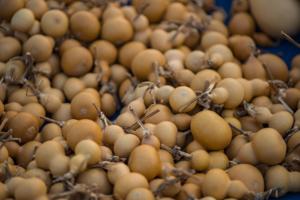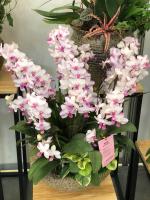What's Wrong with My Pot Plant
Many people who dabble in gardening often experience some trouble with their pot plants. If you are one of these people and you are noticing that your plants are not growing as you expected, there could be several reasons. This article will explore common problems that could be affecting your pot plants and how you can remedy them.
Poor Drainage
One of the most common reasons why pot plants fail to thrive is poor drainage. When there's inadequate drainage, the potting soil remains waterlogged, which leads to root rot. To minimize the impact of poor drainage, it is essential to add coarse sand, perlite, or vermiculite to the soil. These materials will improve the drainage of your pot plant and prevent root rot. Additionally, ensure that your pot has drainage holes at the bottom.
Improper Lighting
Light is vital for photosynthesis to take place in plants. If your pot plant is not receiving enough light, it will not grow properly. Similarly, too much light can damage the plant's leaves, and it may wilt or even die. The amount of light required varies from plant to plant. Conduct research on the type of plant you have and ensure you place it in an area with an optimal amount of light.
Overwatering or Underwatering
Water is necessary for plant growth, but overwatering or underwatering your pot plant can damage or kill it. When you overwater, the roots cannot get enough oxygen, leading to root rot. On the other hand, when you underwater the plant, the leaves will wilt, and the plant will eventually die. Ensure that you water your pot plant correctly and consistently. Observe the plant regularly to determine whether it needs more or less water.
Wrong Soil Type
A significant contributor to plant growth is the soil. Different plants have different soil requirements. Some plants require moist, fertile soil, while others grow better in well-draining or sandy soils. It's essential to select the appropriate soil mix for your pot plant to thrive. You can conduct research or consult a gardening expert to determine the best soil type for your plant.
Pests and Diseases
Lastly, your pot plant may not be growing adequately due to pests or diseases. Several pests, including spider mites, mealybugs, and aphids, can damage your plants. Diseases such as fungal and viral infections can also cause growth problems. It's essential to be cautious and conduct regular inspections to prevent and treat any pest or disease outbreaks. Use organic pest control methods, such as insecticidal soaps or neem oil, to avoid harming your plant.
Conclusion
There could be various reasons why your pot plant is not growing correctly. However, by being attentive and taking appropriate measures, you can revive your pot plant or prevent further damage. Proper soil selection, appropriate watering, optimal lighting conditions, and pest control are the essential factors that will ensure your pot plant thrives. With patience and dedication, you can grow a healthy, beautiful plant to brighten up your home and lift your spirits.

 how many times do yo...
how many times do yo... how many planted tre...
how many planted tre... how many pine trees ...
how many pine trees ... how many pecan trees...
how many pecan trees... how many plants comp...
how many plants comp... how many plants can ...
how many plants can ... how many plants and ...
how many plants and ... how many pepper plan...
how many pepper plan...
































